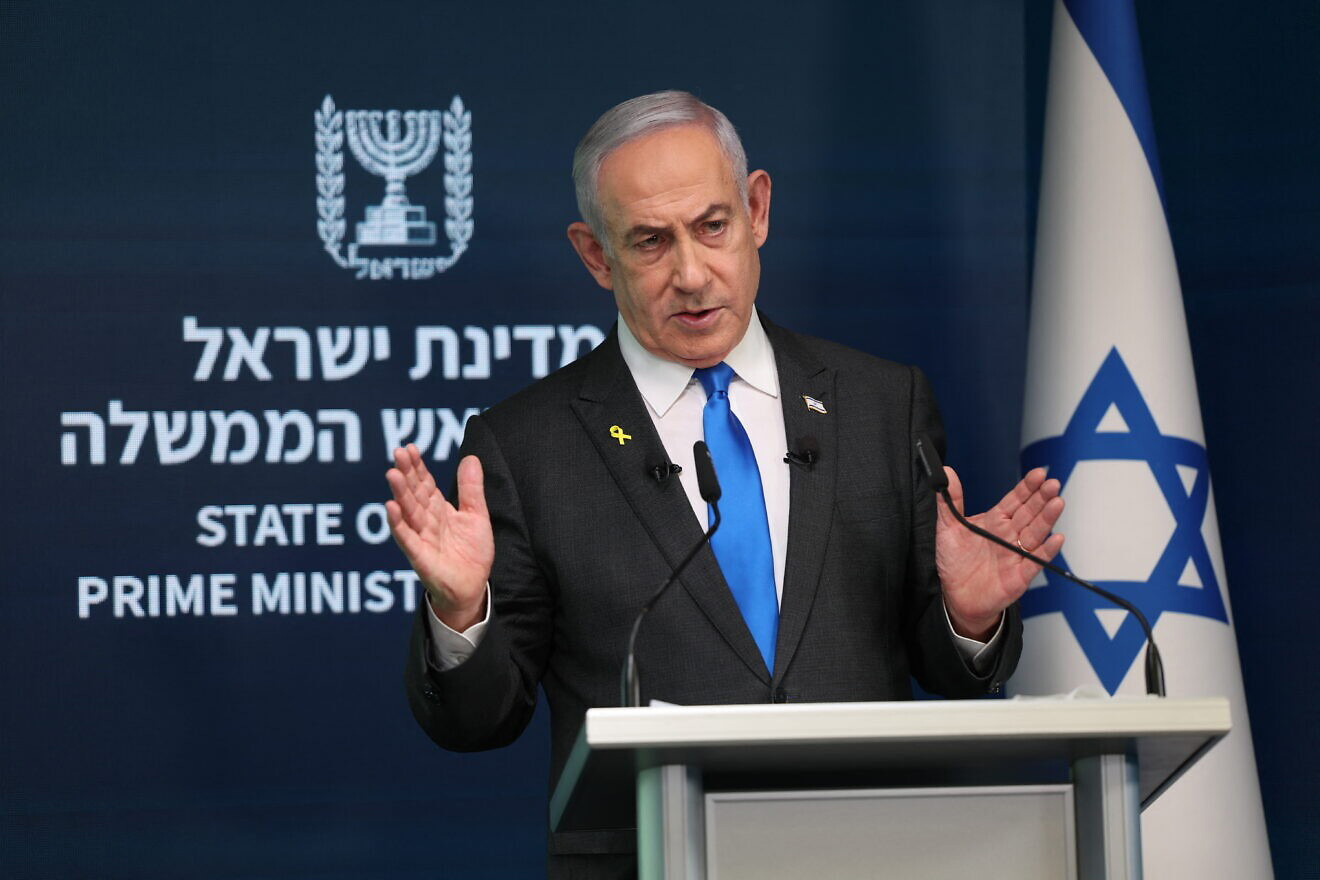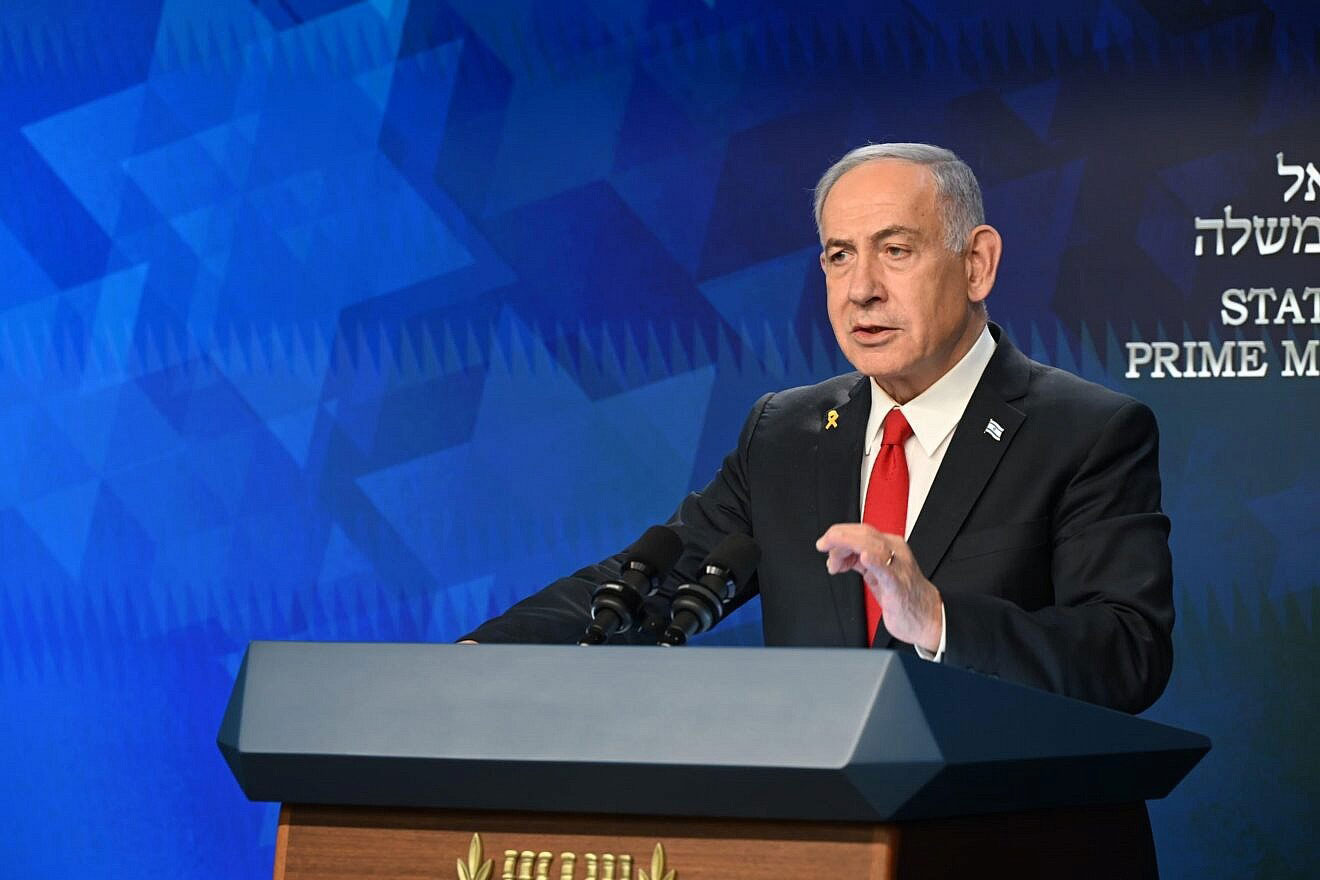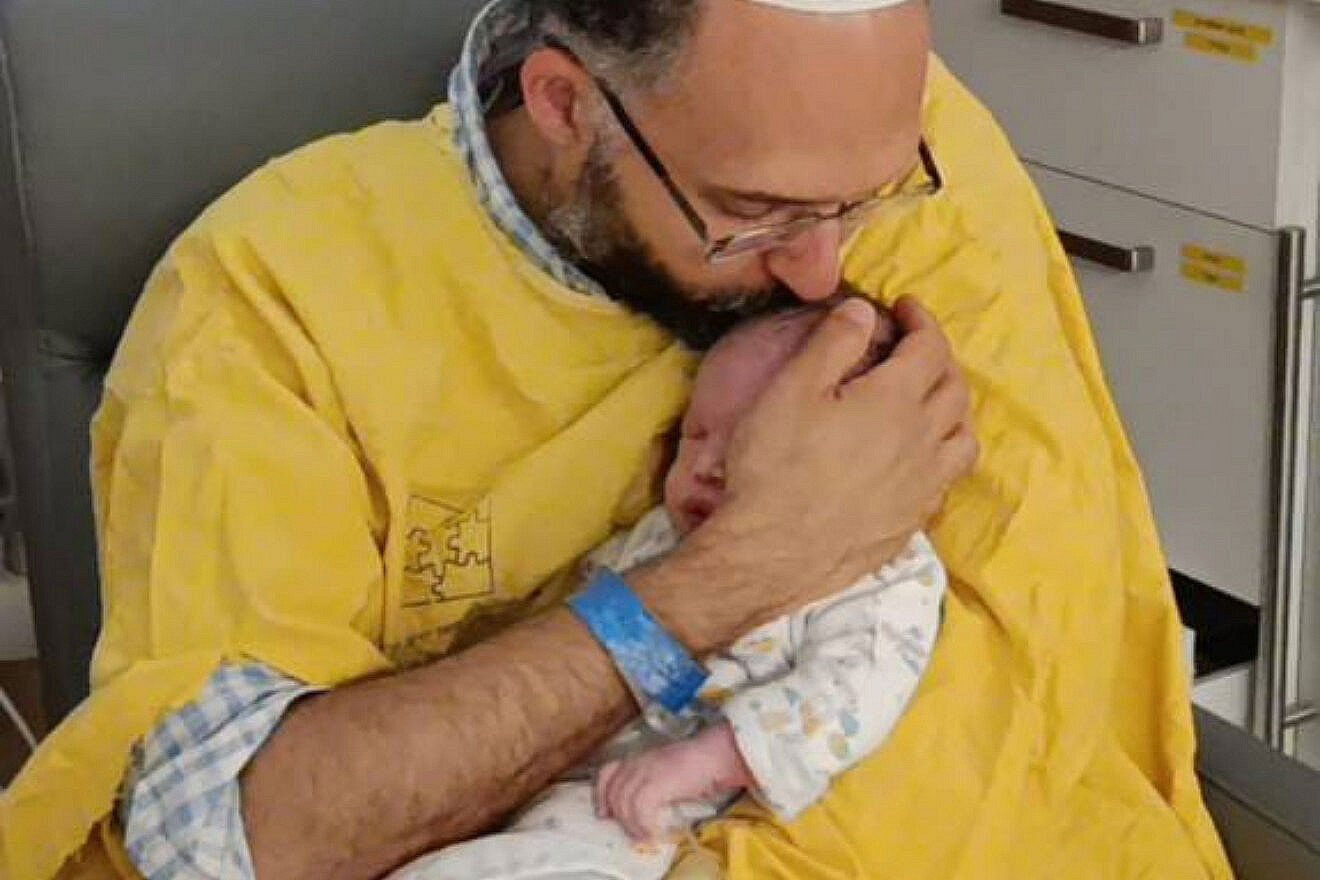Courtesy of JNS. Photo credit: Abir Sultan/POOL/AFP
Israeli Prime Minister Benjamin Netanyahu gives a press conference at the Government Press Office headquarters in Jerusalem, Sept. 4, 2024
(JNS) — Jerusalem might consider a withdrawal of troops from the Gaza-Egypt border as part of a hostage deal with Hamas if a viable alternative can be found to prevent the terror group from rearming itself through tunnels, Israeli Prime Minister Benjamin Netanyahu said on Wednesday.
“We’re open to considering it. But I don’t see that happening right now. And until that happens, we’re there,” Netanyahu told reporters during a briefing held at the Government Press Office headquarters in Jerusalem.
Netanyahu did not deny reports that negotiators told mediators that Jerusalem still supports a withdrawal of the Israel Defense Forces from the Philadelphi Corridor, the 8.7-mile border area separating Gaza from Egypt’s Sinai Peninsula, in the second phase of a possible agreement.
“I agreed to reduce the number of troops along the Philadelphi Corridor,” the Israeli leader stated. “The other thing is what happens in phase two.” Israel’s demands for a permanent ceasefire with Hamas include a solution to stop the terror group from bringing in weapons through Sinai, he said.
“Somebody has to be there,” Netanyahu stressed, adding that he would support any actor “who will actually show us, not on paper, not in words, not in slides, but on the ground, day after day, week after week, month after month,” that it is able to thwart attempts by Hamas and its Iranian backers to once again turn the Gaza Strip into a terrorist enclave.
Following Israel’s 2005 disengagement from the Gaza Strip, including the Philadelphi Corridor, the border became “completely porous,” he said. “Once we left the Philadelphi Corridor, Iran could carry out its plan to turn Gaza into a terror base that would not only threaten the communities around it but also Tel Aviv,” according to the premier.
This withdrawal “led to the Oct. 7 massacre, which Hamas has proudly vowed to do again, again and again,” he stated. “You want to destroy Hamas’s military and governing capabilities? You have to stop them from bringing weapons in. Gaza cannot have a future if Hamas will rebuild.”
In addition, the failure to seal Gaza’s border with Sinai could lead to the remaining hostages being smuggled to Iran or Yemen through Egypt, Netanyahu charged, saying this is “clear to most Israelis — all Israelis.
“If you want to release the hostages, you got to control the Philadelphi Corridor,” the Israeli premier reiterated in response to questions. “I am willing to make a deal; I made one already, one that brought back 117 hostages alive, and I’m committed to returning the remaining 101.”
“The real obstacle to making a deal is not Israel, and it’s not me, it’s Hamas, it’s [Hamas leader Yahya] Sinwar,” Netanyahu concluded.
In a Hebrew address on Monday night, Netanyahu charged that the Jewish people’s “entire future” is determined by the fate of the Philadelphi Corridor, which he called the “oxygen” of Hamas and Iran.
Commenting on the U.S.-brokered truce negotiations, Netanyahu noted that Hamas did not budge for months. “The first crack came when we went into Rafah and took over the Philadelphi Corridor, when we took over the passage; that’s when they started talking differently,” he said.
One hundred and one hostages — alive and dead — are still held captive in Gaza after more than 300 days. Off-and-on talks have continued for months with the United States, Egypt and Qatar acting as mediators.
U.S. Secretary of State Antony Blinken has confirmed that Jerusalem accepted Biden’s May 31 ceasefire-for-hostages outline, as well as last month’s so-called “bridging proposal” presented by the United States.
“In a very constructive meeting with Prime Minister Netanyahu today, he confirmed to me that Israel accepts the bridging proposal, that he supports it,” the diplomat told reporters after meetings in Jerusalem on Aug. 19, adding that “it’s now incumbent on Hamas to do the same.”
Hamas formally rejected the bridging proposal on Aug. 18, accusing Netanyahu of “setting new conditions and demands with the aim of thwarting the mediators’ efforts and prolonging the war.
U.S. officials told The Wall Street Journal on Wednesday that a new draft deal is in the works, but that Hamas was still the least willing to say yes.
Negotiators confirmed to the newspaper that the agreement that is currently being offered gives Hamas most of what it wanted, with the Israeli government making many concessions to reach a bargain.
Two new polls published this week revealed that a majority of Israeli Jews support maintaining control of the Philadelphi Corridor, even at the expense of an agreement to release the remaining captives.





